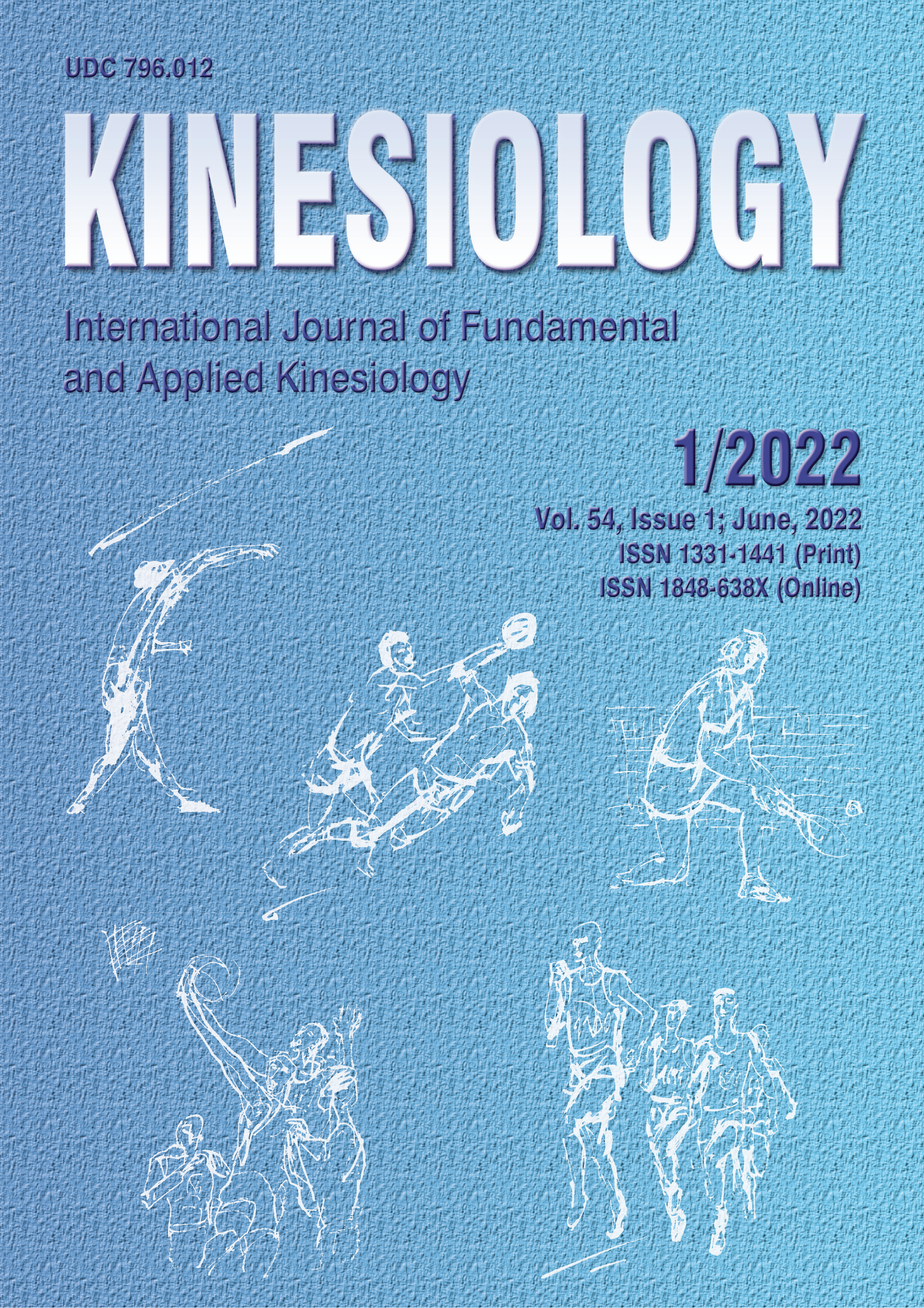THE IMPACT OF COVID-19 RESTRICTIVE MEASURES ON PHYSICAL ACTIVITY AND SEDENTARY BEHAVIOR IN CHILDREN AND ADOLESCENTS: A SYSTEMATIC REVIEW
Abstract
The purpose of this review was to gather studies that reported the impact of COVID-19 restrictive measures on physical activity and sedentary behavior in children and adolescents, and to present key findings. The search for articles was performed in three databases of scientific literature: PubMed, Scopus, and Web of Science. We included articles that reported a change in the amount of physical activity and/or sedentary behavior during COVID-19 restrictive measures compared to the period before restrictive measures. The quality of the articles was assessed using the Newcastle-Ottawa Scale. The search returned 1391 hits, of which 23 articles were included in the review. The studies showed that participation in physical activity predominantly decreased (in 17/23 studies) and sedentary behavior predominantly increased (in 16/17 studies). The results regarding the reduction of physical activity were the most consistent for moderate to vigorous physical activity, while the direction of change was mixed for some types of physical activity (e.g., exercise, walking). The results regarding sedentary behavior were mostly consistent in terms of increasing the total amount of sedentary behavior as well as types of sedentary behavior (e.g., watching TV, using tablets). This review showed that COVID-19 restrictive measures have further increased the issue of insufficient physical activity and excessive sedentary behavior among children and adolescents. There is a need for the development of interventions for maintaining/increasing physical activity among children and adolescents that would be suitable for implementation during the future pandemics and other similar crisis situations.
Downloads
Published
How to Cite
Issue
Section
License

This work is licensed under a Creative Commons Attribution-NonCommercial 4.0 International License.
At Faculty of Kinesiology we recognize that access to quality research is vital to the scientific community and beyond. Kinesiology is non-profit journal and all costs of publishing and peer review process are covered by the publisher itself or other funding sources like Ministry of Science and Education of the Republic of Croatia. Full text papers are also available free of charge at http://hrcak.srce.hr/kineziologija. There are no restrictions on self archiving of any form of paper (preprint, postprint and publisher's version).
Articles are distributed under the terms of the CC BY - NC 4.0
Kinesiology does not charge any fees to authors to submit or publish articles in our journal.


